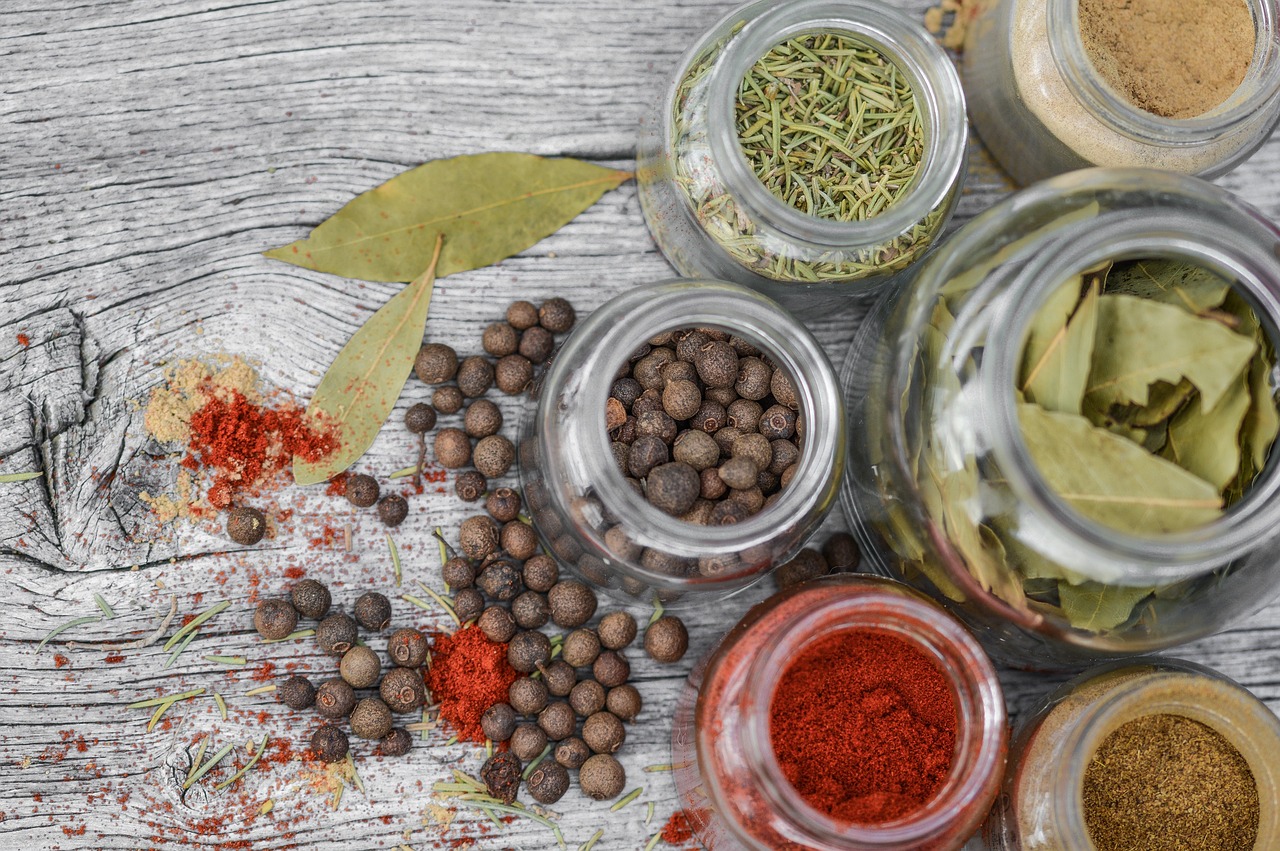Gut-healing herbs:
Welcome to a journey of digestive rejuvenation! In the journey for optimal gut health, nature unfolds its healing wonders through a palette of gut-healing herbs. The importance of gut health is one of the foundations of Ayurveda, and research shows certain dietary staples used in Ayurveda can have a significant impact on gut health. If your digestive health is unstable, your body loses its ability to utilize nutrients and provide energy.
In this article, we will explore the secrets of five potent gut-healing herbs, renowned for their remarkable contributions to digestive wellness from the soothing embrace of fennel seeds to the aromatic process of pepper, each herb weaves a unique tapestry of benefits for your gut.
Join us as we delve into the world of herbal healing, discovering how these time-honored remedies may hold the key to cultivating balance and vitality within your digestive system. To know more on how calcium, iron and vitamin D3 effects on gut, then read this article, https://sparklinglifestyle.in/relationship-between-calcium-iron-and-vitamind3/
Embrace the power of nature on your path to harmonious and resilient gut through gut-healing herbs. Such as,

- Fennel seeds:
Fennel seeds, known for its anti-inflammatory and antispasmodic properties and has been employed to reduce digestive discomfort. It may aid in easing, bloating, indigestion, and abdominal cramps, offering a natural remedy for common gastrointestinal issues.
Moreover, Fennel seeds are rich source of dietary fiber, promoting regular bowel movements and preventing constipation. Fiber plays a crucial role in maintaining a healthy gut by supporting the growth of beneficial bacteria and optimizing overall digestive system.
In addition, Fennel seeds contain antioxidants such as flavonoids and polyphenols, contributes to neutralization of free radicals.
Fennel seeds act as a carminative, helping to expel gas from the digestive tract and reduce bloating. This carminative quality can contribute to a more comfortable and balanced gut environment.
How to incorporate:
Enjoying fennel seeds is not only therapeutic, but also versatile. They can be consumed directly, added to teas, or used as a flavorful spice in cooking. Fennel tea is a popular choice for those seeking a gentle and natural digestive aid.
- Jeera (Cumin seeds), Cardamom and Ajwain (Carom seeds) infused water:
Jeera (Cumin seeds), known for its distinctive warm and earthy flavor. It may aid in digestion by promoting the release of digestive enzymes, reducing bloating, and easing in digestion. This spice also has my antimicrobial properties contributing to a balanced gut microbiome.
Cardamom, adding a fragment touch to the infusion, cardamom is more than just a spice for flavor. It holds anti-inflammatory properties and may soothe the digestive tract, making it beneficial for individuals dealing with digestive discomfort. Cardamom may also help reduce symptoms of indigestion.
Ajwain (Carom seeds), brings a digestive flavor and host of digestive benefits to the blend. Its carminative properties make it effective in reducing gas and floating. It is also known for its ability to enhance the secretion of gastric juices, adding in digestion.
How to prepare:
Creating this herbal elixir is simple in all gut-healing herbs. Crush a few cumin seeds, cardamom pods and carom seeds. Infuse them in warm water for a few minutes. Along the water to absorb the essence of these herbs, strain, and sip on these digestive elixir throughout the day.
- Ajwain (Carom seeds) with black salt:
Ajwain (Carom seeds), known for its distinctive flavor, harbors potent digestive properties. It is carminative nature helps reduce bloating and gas, while also aiding in the release of digestive enzymes. It is a traditional remedy for indigestion and can be a valuable ally for those seeking digestive comfort.
Black salt, revered in Ayurveda for its therapeutic qualities, complements the digestive prowess of Ajwain. It contains trace minerals that may aid in the digestive process. Additionally, Black salt is believed to stimulate the production of digestive juices, promoting efficient nutrient absorption and reduce digestive discomfort.
Combined benefits:
Together, carom seeds and black salt create a synergy that goes beyond enhancing taste. This combination may help improve digestion, reduce acidity, and provide relief from common digestive issues. The carminative effect of a Ajwain coupled with the digestive support of black salt, makes these blend a go to for those looking to nurture their gut health.
How to use:
Incorporating carom seeds with black salt into your diet is easy. You can sprinkle this blend on salads, fruits, or snacks for an extra burst of flavor. Additionally, you can make a simple digestive aid by mixing crust carom seeds with a pinch of black salt and consuming it with warm water after meals.
- Asafoetida:
Asafoetida (Hing) for its carminative qualities aiding in the relief of gas and floating. It contains compounds that may stimulate the production of digestive enzymes facilitating the breakdown of food and promoting efficient digestion. These make it particularly beneficial for those prone to indigestion.
The anti-inflammatory nature of Asafoetida (Hing) contributes to its digestive prowess. It may help soothe the digestive tract, making it a potential remedy for conditions like irritable bowel syndrome (IBS) and other inflammatory digestive issues.
Furthermore, Asafoetida Possesses antimicrobial properties that may support a healthy balance of gut bacteria. This is crucial for maintaining optimal digestive function and overall gut well-being.
How to use:
Incorporating Asafoetida into your culinary is simple. A pinch of this spice can be added to various dishes during the cooking process, imparting a unique umami flavor. It is commonly used in vegetarian and lentil-based dishes to enhance both taste and digestibility.
- Ginger:
Ginger has anti-inflammatory and antioxidant properties, making it an asset for gut health. These attributes may help reduce inflammation in the digestive tract, providing relief to people dealing with conditions such as inflammatory bowel disease.
Ginger is a time-honored remedy for various digestive discomfort. It aids in reducing nausea using the indigestion and calming and upset stomach. Its ability to relax the muscles of gastrointestinal tract contributes to smoother digestion, making it particularly beneficial for those prone to digestive issues.
In addition, Ginger’s bioactive compounds, including gingerol, may have antimicrobial effects supporting a healthy balance of gut bacteria. This can contribute to overall gut microbiome health, essential for optimal digestion and nutrient absorption.
Incorporating Ginger into your diet:
Adding Ginger to your diet is simple and delightful. It can be consumed fresh, as a tea or as a flavorful spice in both sweetens savory dishes. Ginger tea is a popular and soothing way to enjoy the digestive benefits of the remarkable root.
Conclusion:
Incorporating these powerful herbs into your routine can contribute to digestive wellness. Embrace the natural benefits of these gut-healing herbs to support a healthier digestive system and overall well-being.
Remember to consult with a doctor before introducing new herbs into your diet, especially if you have pre-existing health conditions or are taking medications. to know more about gut, read my book, The magical ways for sparkling lifestyle.



Leave a Comment